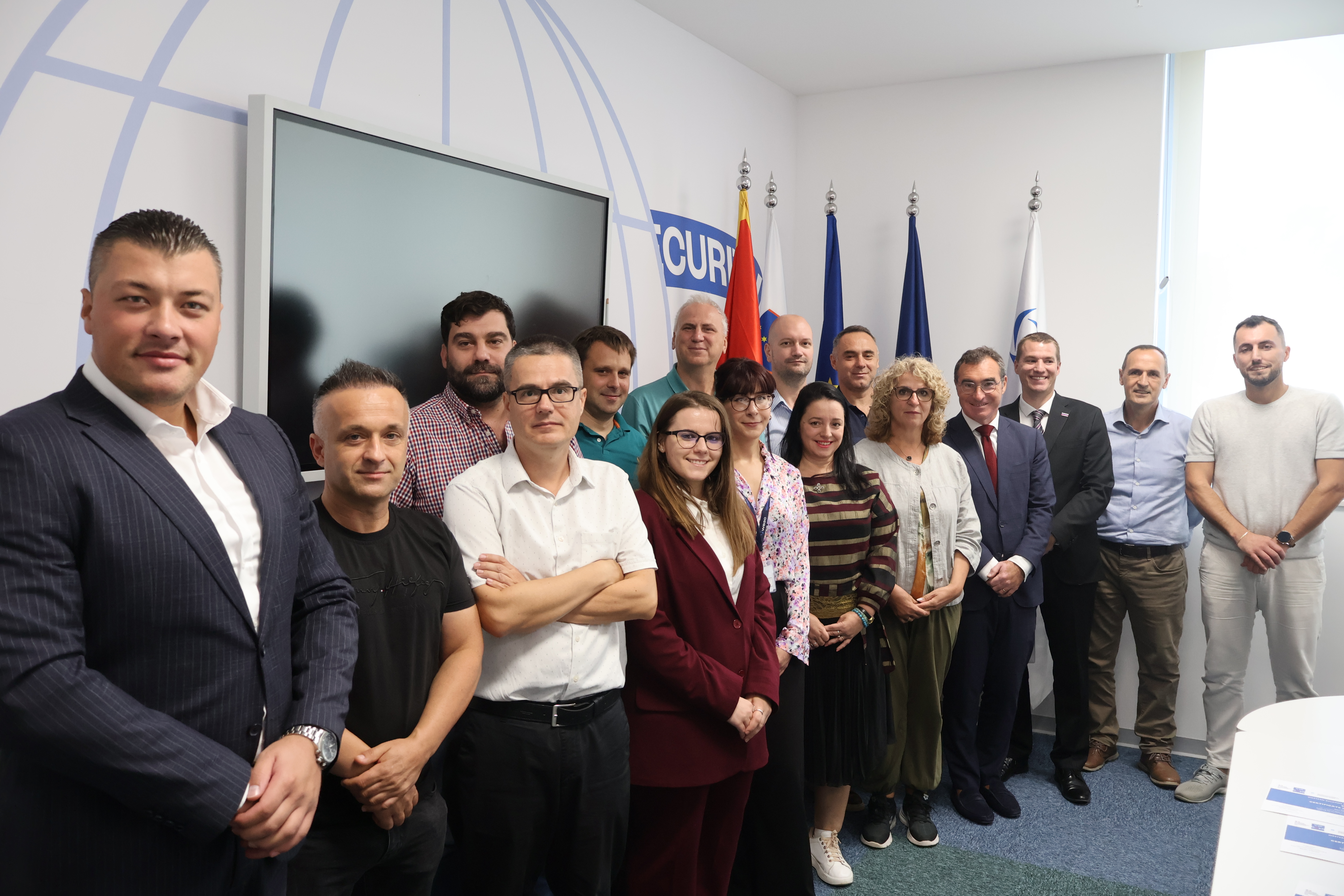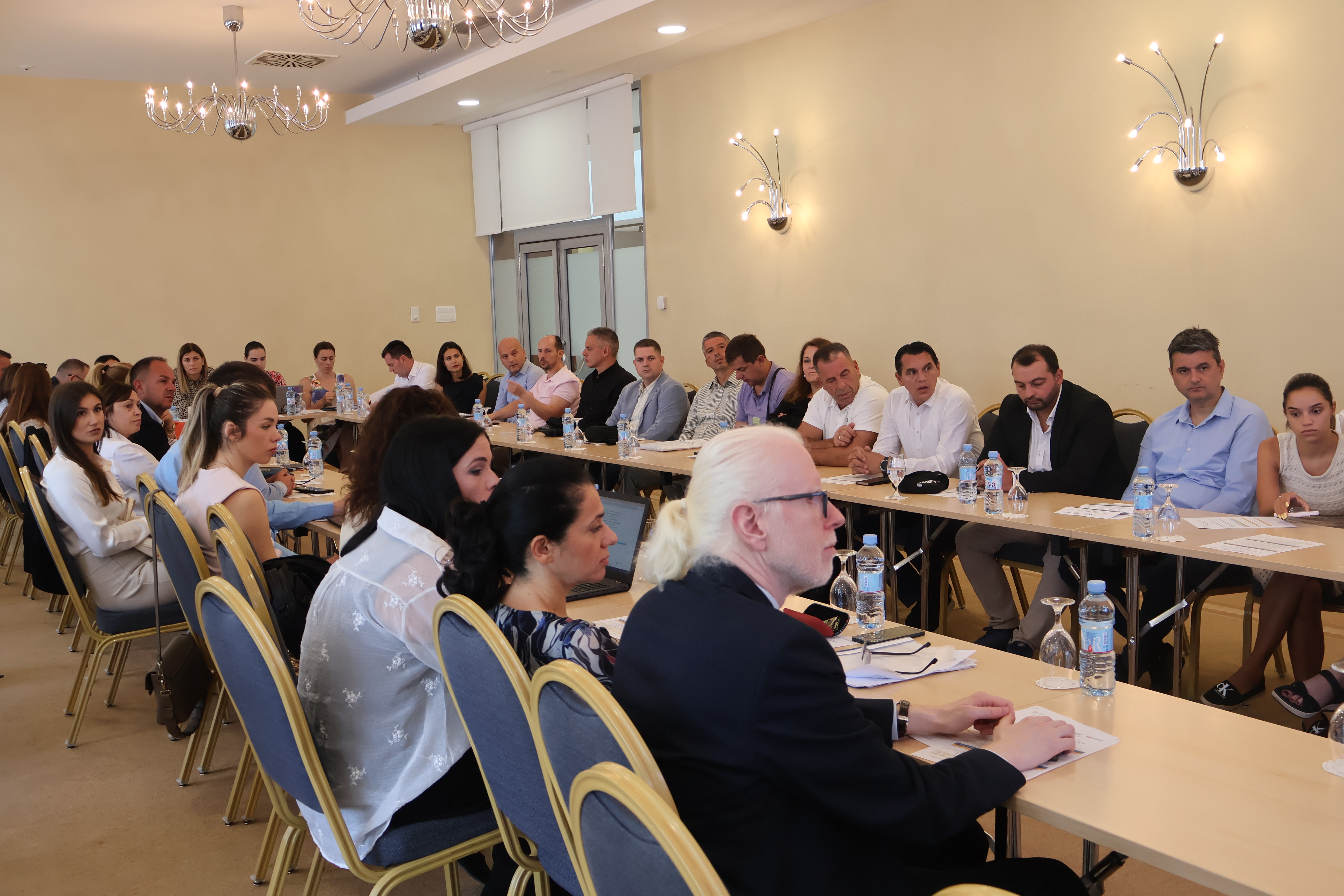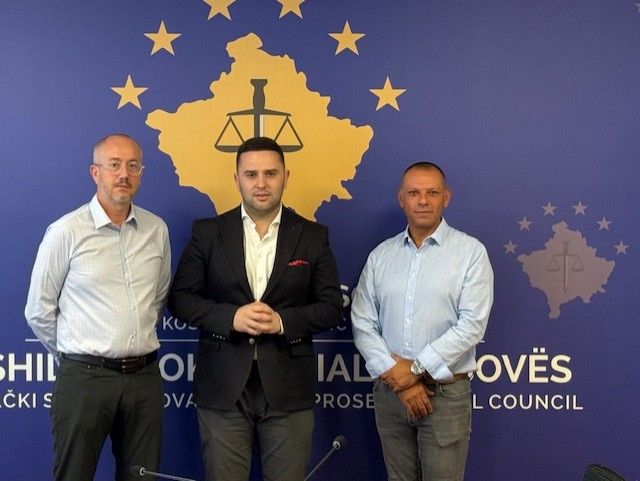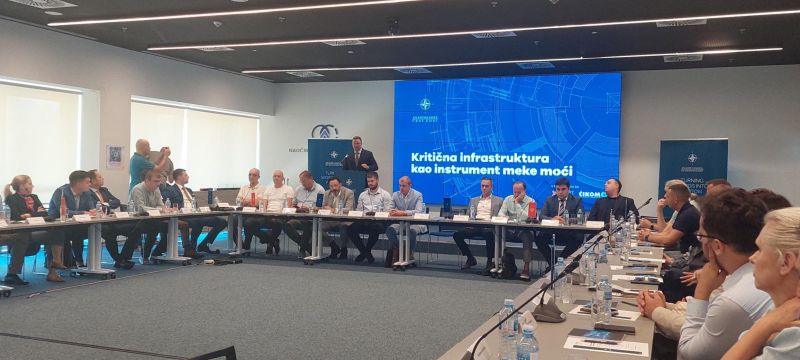EU Legislation and Public Sector Standards for Cyber
This week in Bar, Montenegro, DCAF - Geneva Centre for Security Sector Governance and Regional School of Public Administration (ReSPA) and Western Balkans Cyber Capacity Centre (WB3C) jointly delivered a three-day regional training on cybersecurity legislation and public-sector standards.
The event gathered representatives from across the Western Balkans’ public administrations — an opportunity to connect networks, exchange practices, and strengthen a common regional approach to cybersecurity capacity. The programme was funded by the UK's Foreign, Commonwealth and Development Office, with Melanie Moffat from the British Embassy Podgorica attending the training.
Day 1 opened with remarks from Franziska Klopfer (DCAF) and Gilles Schwoerer (Head of WB3C). In his opening address, Gilles underlined that WB3C is not just a centre in Podgorica, but a regional platform designed as a resource for the entire Western Balkans — built for the region, to be used by the region. The day continued with sessions on EU legislation and certification frameworks, including insights into Italy’s cybersecurity architecture and the functions of the Italian National Cybersecurity Agency (Agenzia per la Cybersicurezza Nazionale).
🔹 Day 2 brought a broader audience, as more participants from the ReSPA network joined. Bojana Bajić (ReSPA) joined Franziska and Gilles in addressing the group, stressing the importance of cooperation across institutions in the process of advancing cybersecurity capabilities and aligning normative frameworks with EU standards. Participants then heard from the National Cybersecurity Authority of Greece, explored digital competencies for public administration, and worked on designing cybersecurity training curricula for civil servants, IT staff, and managers.
🔹 On Day 3, the sessions will turn to national practices, with contributions from Serbia’s National Academy for Public Administration and the Civil Service Agency of Bosnia and Herzegovina, offering concrete models for embedding cybersecurity into public administration training systems.
Together with DCAF and ReSPA, and with the support of FCDO, this training strengthened the foundations for a more resilient public sector across the Western Balkans, aligned with the region’s needs and EU accession priorities.






